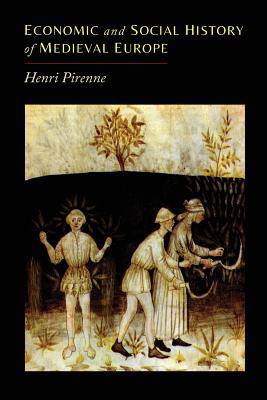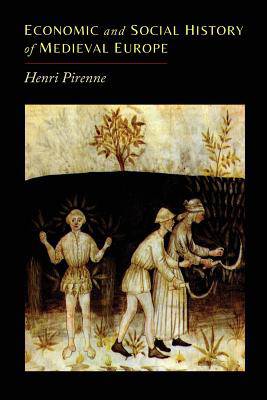
Bedankt voor het vertrouwen het afgelopen jaar! Om jou te bedanken bieden we GRATIS verzending (in België) aan op alles gedurende de hele maand januari.
- Afhalen na 1 uur in een winkel met voorraad
- In januari gratis thuislevering in België
- Ruim aanbod met 7 miljoen producten
Bedankt voor het vertrouwen het afgelopen jaar! Om jou te bedanken bieden we GRATIS verzending (in België) aan op alles gedurende de hele maand januari.
- Afhalen na 1 uur in een winkel met voorraad
- In januari gratis thuislevering in België
- Ruim aanbod met 7 miljoen producten
Zoeken
€ 16,45
+ 32 punten
Uitvoering
Omschrijving
2014 Reprint of 1937 Edition. Full facsimile of the original edition, not reproduced with Optical Recognition Software. Henri Pirenne's reputation today rests on three contributions to European history: for what has become known as the Pirenne Thesis, concerning the origins of the Middle Ages in reactive state formation and shifts in trade; for a distinctive view of Belgium's medieval history; and for his model of the development of the medieval city. Pirenne argued that profound social, economic, cultural, and religious movements in the long-term resulted from equally profound underlying causes, and this attitude influenced Marc Bloch and the outlook of the French "Annales" School of social history. Though Pirenne had his opponents who disagreed on essential points, recent historians of the Middle Ages usually take Pirenne's main theses, however much they are modified, as starting points.
Specificaties
Betrokkenen
- Auteur(s):
- Uitgeverij:
Inhoud
- Aantal bladzijden:
- 256
- Taal:
- Engels
Eigenschappen
- Productcode (EAN):
- 9781614275985
- Verschijningsdatum:
- 10/03/2014
- Uitvoering:
- Paperback
- Formaat:
- Trade paperback (VS)
- Afmetingen:
- 152 mm x 229 mm
- Gewicht:
- 381 g

Alleen bij Standaard Boekhandel
+ 32 punten op je klantenkaart van Standaard Boekhandel
Beoordelingen
We publiceren alleen reviews die voldoen aan de voorwaarden voor reviews. Bekijk onze voorwaarden voor reviews.









